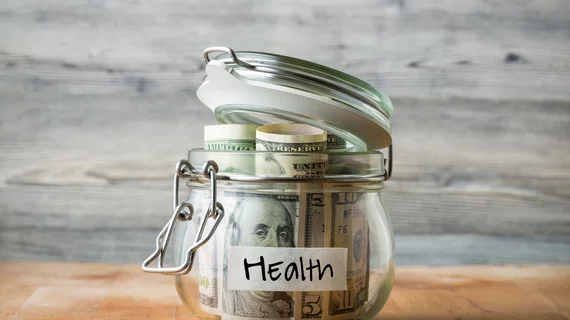Out-of-pocket costs 112% more for breast cancer survivors with lymphedema
For patients with breast cancer, out-of-pocket costs can carry a heavy burden. According to a recent Journal of Supportive Care and Cancer study, those costs can last years after diagnosis—climbing higher for those with lymphedema.
Study lead Lorraine T. Dean with Johns Hopkins University and colleagues analyzed cancer-related costs in 129 breast cancer survivors from Pennsylvania and New Jersey—more than 46 percent had lymphedema. Mean survivor age of the participants was 63 years old, and they were an average of 12 years from diagnosis.
Researchers also interviewed a subset of 40 patients representing a variety of socioeconomic statuses to better understand their finances.
They found that, excluding productivity losses, lymphedema patients had $2,306 in annual adjusted health-related out-of-pocket costs. Those without the cancer side-effect had an average of $2,792 in annual out-of-pocket costs. A difference of 112 percent, authors noted.
"That extra $2,000 or so may not break the bank in one year," Dean said in a Johns Hopkins news release. "But it can take away discretionary spending, or whittle away retirement savings. If it's a recurring burden each year, how can you ever rebuild? That extra $2,000 in spending can cripple people over the long term."
More than 98 percent of women in the study had insurance, but changes and challenges with plans inflated the issue for those with and without lymphedema, Dean et al. reported. Switching from private to public insurance was cited as one of the most common problems related to lymphedema coverage.
Strategies to help alleviate costs, such as encouraging healthier behaviors, places most of the responsibility on the patient, rather than the healthcare system, Dean and colleagues argued.
More needs to be done from the provider standpoint, authors wrote, to help pass legislation and to encourage coverage for conditions such as lymphedema and help lessen patients’ financial burden.
"The U.S. is too resource-rich for people to have to make decisions between their health and their wealth," Dean concluded. "By making some important changes in coverage, we can help breast cancer survivors who continue to struggle with economic burdens long after their cancers are considered cured."

